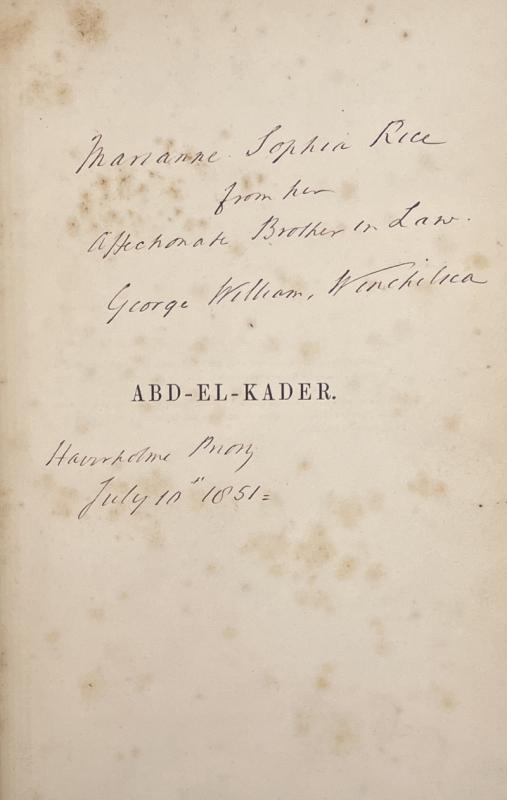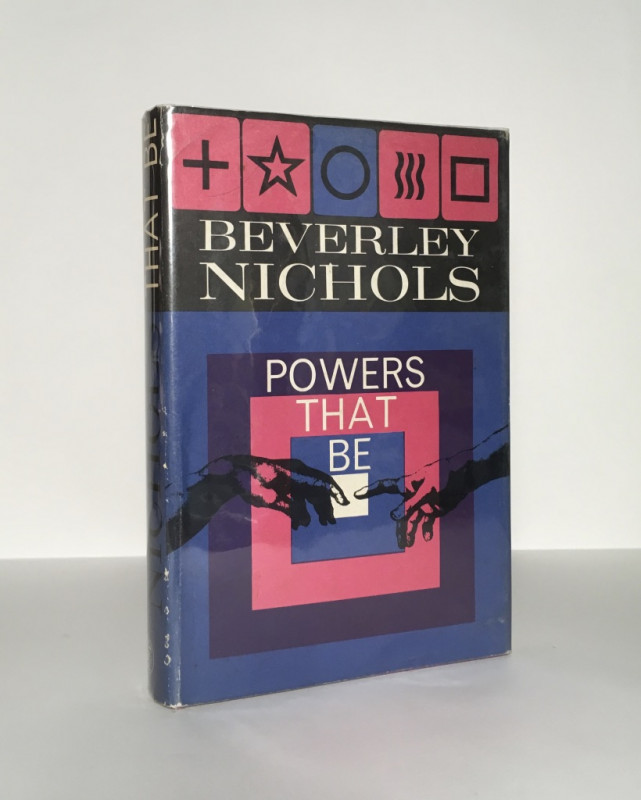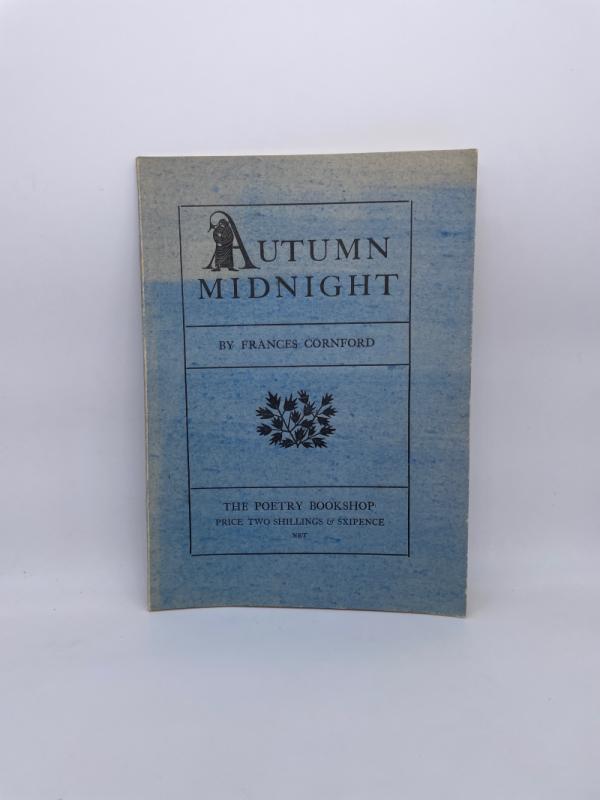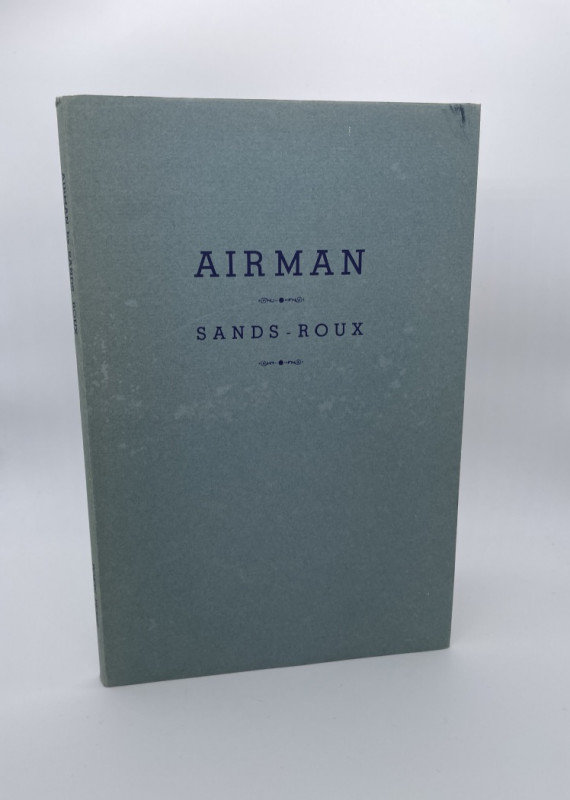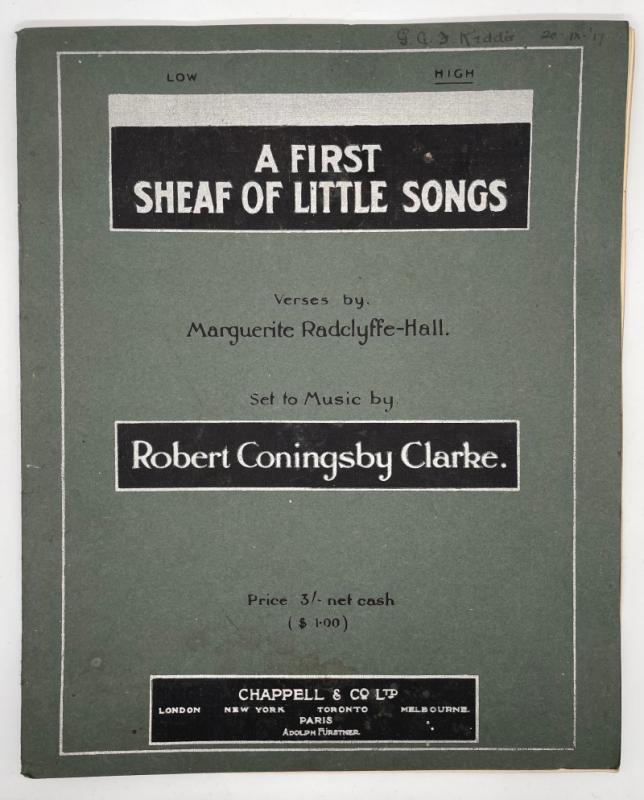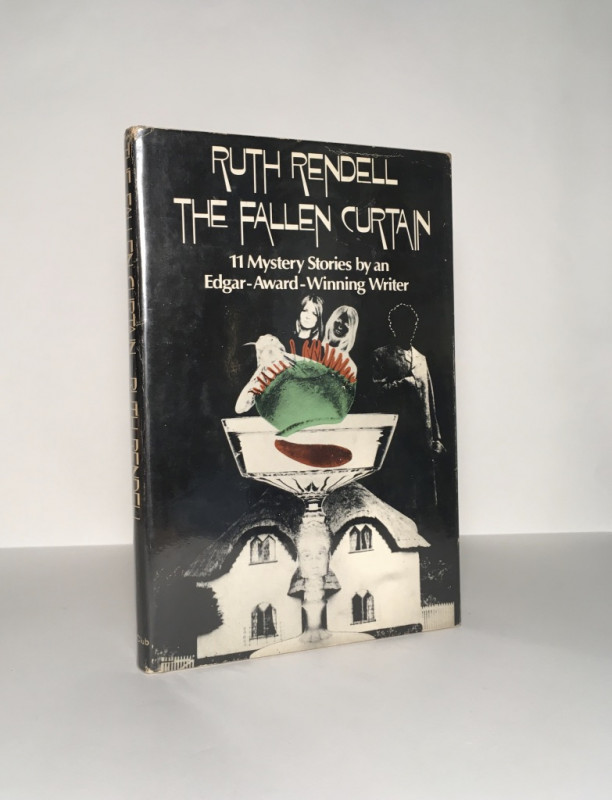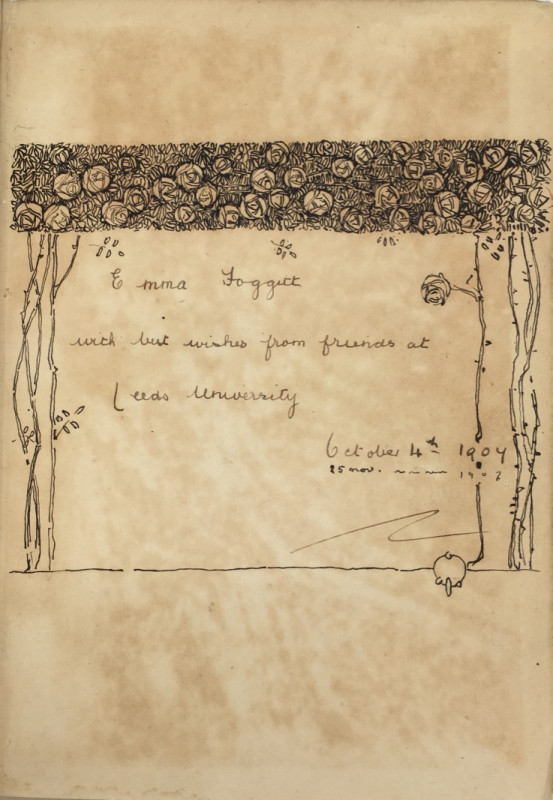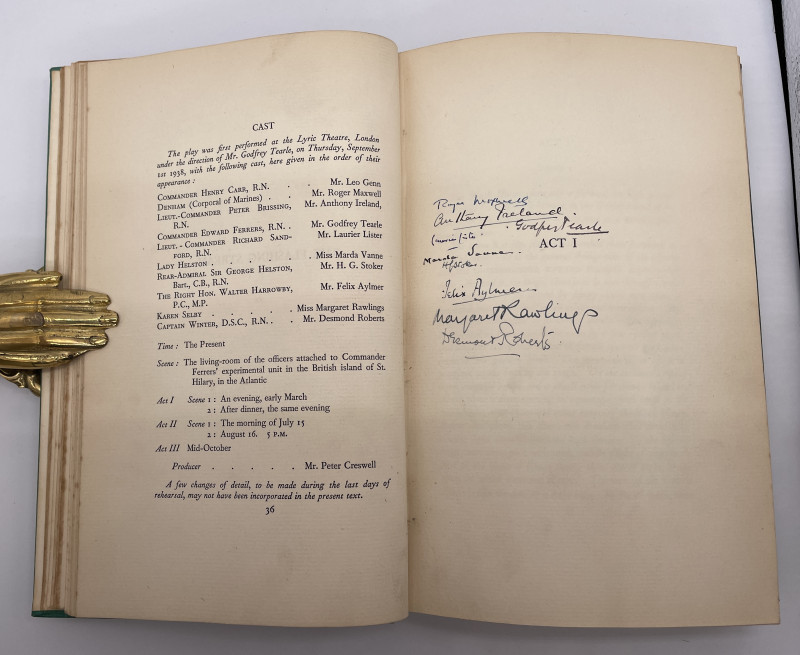Abd-el-kader: A poem. In six cantos.
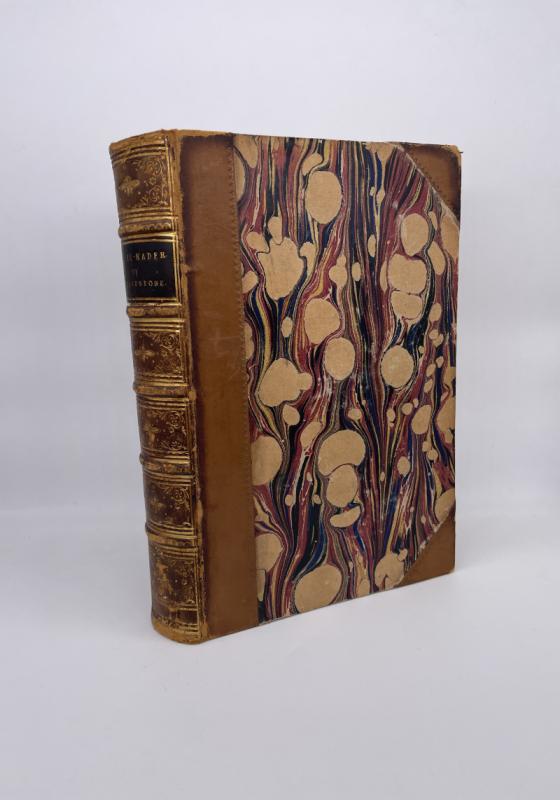


Book Description
FIRST EDITION, INSCRIBED BY AUTHOR. 8vo, pp. xxxix, [1], 351, [1], incl. title-page vignette. Contemporary half tan calf, gilt-tooled spine, five raised spine bands, black morocco title label lettered in gilt, marbled boards. Edges speckled red. Rubbed, edgewear, head of spine and top corners worn and bruised, some chips. Some foxing, heaviest at front and rear, Henry Edward Harcourt Rice’s armourial bookplate to front pastedown, fondly inscribed by Finch-Hatton in brown ink to half-title: “Marianne Sophia Rice from her affectionate Brother in Law, George William, Winchilsea, Haverholme Priory, July 10th 1851=”. Narcissus bloom pressed at pp. 210-11, with attendant offsetting. Else, clean and tight.
Dealer Notes
A handsomely bound, if well-handled, copy of the scarce first edition of George William Finch-Hatton, 10th Earl of Winchilsea’s epic poem and “experiment” in long-form ballad metre about his near contemporary, the Algerian warrior and Sufi spiritual leader Emir Abd el-Kader, fondly inscribed in the year of publication to his sister-in-law, Marianne Sophia Rice, the great-niece of Jane Austen; decades earlier Austen had described the poet- and peer-to-be as “very handsome and agreeable, [he] danced very well, and flirted famously […] all the young ladies were in love with George Hatton”. It was Finch-Hatton’s third marriage, to Fanny Margaretta Rice (1820-1909), that later knit him into the Austen family: the sister of Finch-Hatton’s inscribee, they were both daughters of Elizabeth Austen and granddaughters of Jane Austen’s most fortunate brother, Edward Austen Knight.
George William Finch-Hatton, 10th Earl of Winchilsea, 5th Earl of Nottingham (1791–1858) was an English peer and Tory politician, a vociferous opponent of the Roman Catholic Relief Bill 1829 and the Reform Act. His public critique of the former led to his infamous duel with the Prime Minister, Arthur Wellesley, 1st Duke of Wellington that same year. Both survived.
A near contemporary of Finch-Hatton (who, indeed, acknowledged himself as “singularly fortunate” in finding “such a hero as the Numidian Emir as yet unappropriated by others”), Emir Abd el-Kader (1807/8-1883) was a scholar, diplomat, religious and military leader who headed the resistance against French colonial forces in Algeria. In 1847 he was forced to surrender and by 1851, and the publication of Finch-Hatton’s poem, Abd el-Kader was being held in France; his fate became a cause célèbre in certain circles. Louis-Napoleon Bonaparte would release him the following year and provide him with a pension. Abd el-Kader moved to the Levant, eventually settling in Damascus, where he protected Christians during the pogrom of 1860.
This copy was handed down another generation in the Rice family (of Rice Portrait fame), with the armorial ex libris belonging to Henry Edward Harcourt Rice (1864-1943), the only son of Fanny and Marianne’s eldest brother, Admiral Sir Edward Bridges Rice and his wife Cecilia Caroline Harcourt.
George William Finch-Hatton, 10th Earl of Winchilsea, 5th Earl of Nottingham (1791–1858) was an English peer and Tory politician, a vociferous opponent of the Roman Catholic Relief Bill 1829 and the Reform Act. His public critique of the former led to his infamous duel with the Prime Minister, Arthur Wellesley, 1st Duke of Wellington that same year. Both survived.
A near contemporary of Finch-Hatton (who, indeed, acknowledged himself as “singularly fortunate” in finding “such a hero as the Numidian Emir as yet unappropriated by others”), Emir Abd el-Kader (1807/8-1883) was a scholar, diplomat, religious and military leader who headed the resistance against French colonial forces in Algeria. In 1847 he was forced to surrender and by 1851, and the publication of Finch-Hatton’s poem, Abd el-Kader was being held in France; his fate became a cause célèbre in certain circles. Louis-Napoleon Bonaparte would release him the following year and provide him with a pension. Abd el-Kader moved to the Levant, eventually settling in Damascus, where he protected Christians during the pogrom of 1860.
This copy was handed down another generation in the Rice family (of Rice Portrait fame), with the armorial ex libris belonging to Henry Edward Harcourt Rice (1864-1943), the only son of Fanny and Marianne’s eldest brother, Admiral Sir Edward Bridges Rice and his wife Cecilia Caroline Harcourt.
Author
MAIDSTONE, Viscount (FINCH-HATTON, George William, Earl of Winchilsea); [RICE, Marianne Sophia]; [RICE, Henry Edward Harcourt].
Date
1851
Publisher
London: Chapman and Hall
Condition
Good+
Friends of the PBFA
For £10 get free entry to our fairs, updates from the PBFA and more.
Please email info@pbfa.org for more information
